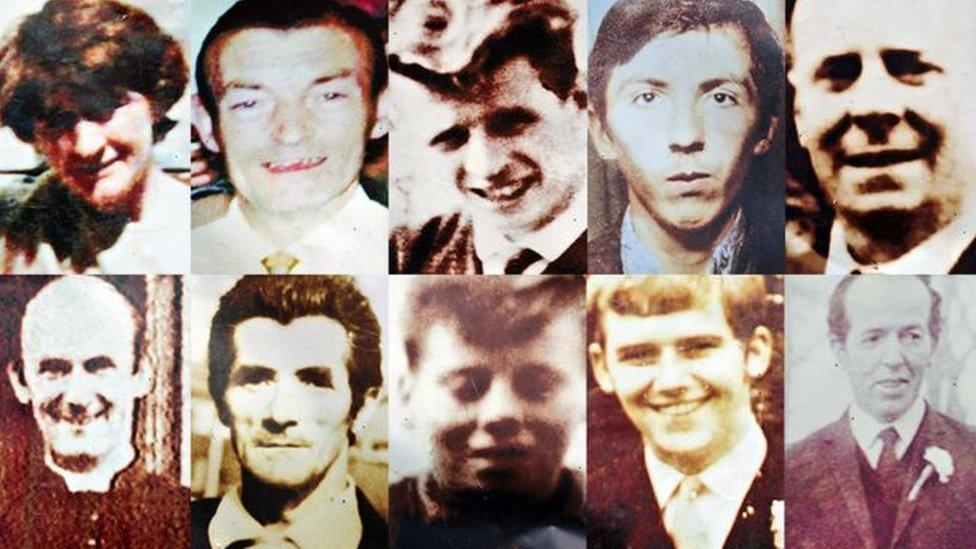Ballymurphy shootings: Who were the victims?
- Published
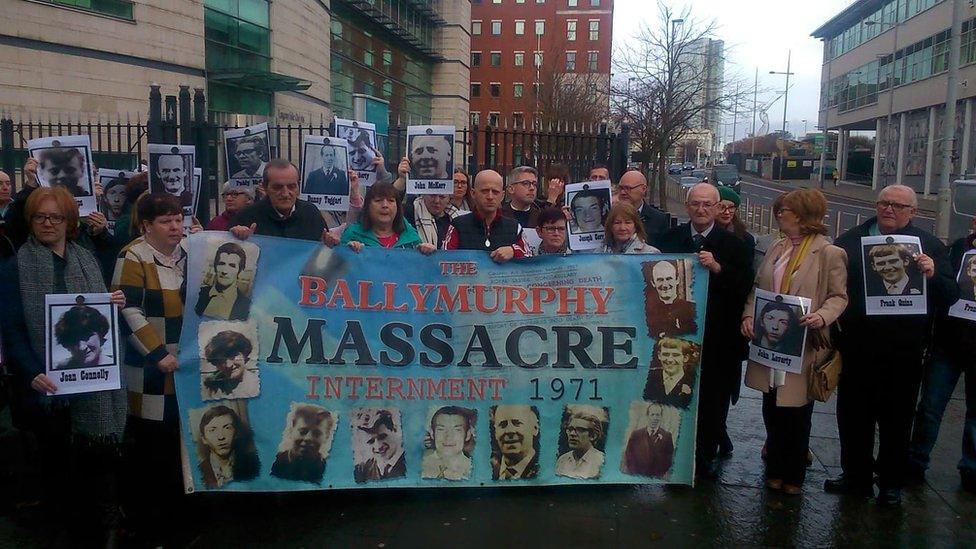
Relatives and supporters gathered outside Laganside Courts on Monday before proceedings got under way
The families of those killed in Ballymurphy in 1971 have been giving moving accounts of their relatives to the inquest.
The killings happened during an Army operation in which paramilitary suspects were detained without trial.
The inquest began in November 2018 and the findings are due to be published on 11 May 2021.
The victims included a priest trying to help one of the wounded and a mother of eight.

Who were the victims?
Father Hugh Mullan, 38, and Francis Quinn, 19, were shot in an area of open ground behind Springfield Park
Daniel Teggart, 44, Joan Connolly, 44, Noel Phillips, 19 and Joseph Murphy, 41, were shot near the Henry Taggart Army base near Springfield Park
John Laverty, 20, and Joseph Corr, 43, were shot at separate points at the top of Whiterock Road
Edward Doherty, 31, was shot at the corner of Brittons Parade and Whiterock Road
John McKerr, 49, was shot outside the old Corpus Christi Parish

Here are extracts from the statements given by the victims' relatives:
Fr Hugh Mullan
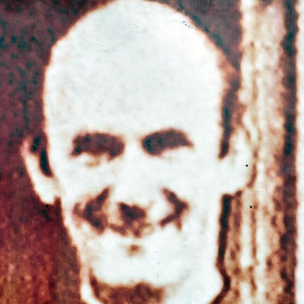
The 38-year-old priest, who was from Portaferry, County Down, and served a year in the Merchant Navy, had served in parishes in Belfast, County Antrim and County Down before coming to Ballymurphy.
His brother, Patsy, said Hugh loved sailing on Strangford Lough and when he served in the Good Shepherd Convent in Belfast he would play guitar and sing to the children.
He said that on the night of 9 August 1971, he heard that a priest had been shot in Ballymurphy.
"I knew it would be him," he said.
"When I was later told that he was dead, I phoned our doctor and asked him to come to be with my mother as I didn't know how she would cope with this news. She was in a terrible state and had to be sedated."
Fr Mullan's cousin, Gabriel Ellison, said that as a child he had been sailing a toy boat off the slip in Portaferry when he fell into the water.
"Hughie ran out of his house and jumped in after me and pulled me out," he said.
"I was surely gone only for his super actions, he was at QUB [Queen's University Belfast] then and had learned life saving skills."

Frank Quinn
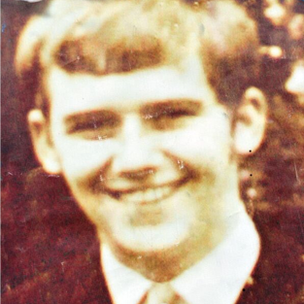
Frank Quinn was 19 and from west Belfast. While he had worked in a number of jobs after leaving school, his main one was a window cleaner.
He married his wife, Ann, when he was 17 and they had a daughter, Angela, soon afterwards.
Ann was pregnant with their second daughter Frances, when Mr Quinn was shot dead.
Frank's younger brother Pat recalled the moment his father came home from work and told the family that Frank had been shot.
"I said 'was he wounded? Was he wounded?' and he said 'no, he's dead'. Those three words changed me and my family's lives forever."
Angela Sloan, Frank Quinn's elder daughter, said growing up without her father was heart-breaking and that her mother never remarried "such was her love for my daddy".
"He should have been there for us but all we had of him was pictures," she said.
"Daddy now has four amazing grandchildren and a little great grandson, Ronan. We were all robbed of his presence in our lives."

Joan Connolly
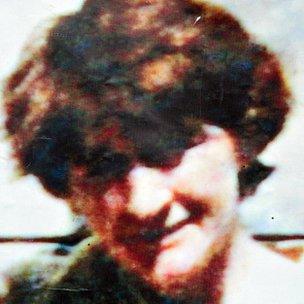
Joan Connolly, a 44-year-old mother of eight, was the only woman shot in the Ballymurphy killings.
Mrs Connolly and her family moved from a two-bedroom bungalow on north Belfast's Shore Road to a four-bedroom house in Ballymurphy in 1966.
Her daughter, Briege Voyle, said her mother was shocked by the start of the Troubles, saying that she "just couldn't get her head around" what was happening
Her eldest daughter married a British soldier and they had a baby son, Joan's first grandson. Previously Joan had made tea and sandwiches for British soldiers at her house.
Briege was moved to a refugee camp in Waterford during the violence in Ballymurphy and only found out her mother was dead when she saw it on a TV news report.
She went out to look for her daughters on the night of 9 August 1971 when she was shot dead.
"My mother was very dearly loved and has been very dearly missed. Losing her destroyed our family.
"Whilst coping without her has been hard for all of us what has made things worse were the media reports that she was a gunwoman and the rumours that followed us that we were the children of the gunwoman that was shot. I believe this to be untrue."

Joseph Murphy
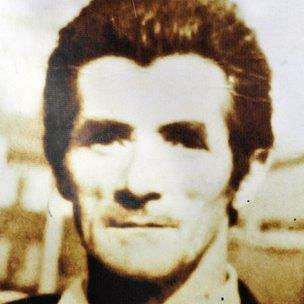
Joseph Murphy, 42, from west Belfast, a father of 12, whose father had served in the British army, worked as a rag and bone man.
His daughter Janet Donnelly said he would often bring stray animals home with him, which was how she got her first pet - a kitten.
She told the inquest she remembered waiting for her dad to come home from work on Friday nights and asking her who she loved most as she sat on his knee.
"I remember my daddy going out on the day he was shot. We were all upstairs and I can remember running to the landing and shouting 'Daddy where are you going?' and him saying 'a wee message'.
"I asked him to give me a kiss and stuck my head through the bannister of our stairs and he kissed me."
He was shot in the leg on 9 August 1971 and taken to hospital where he died 13 days later, on his twin sons' 16th birthday.
"I was only eight when my daddy died but I remember that Sunday as if it was yesterday," Mrs Donnelly said.
"This was the first time I ever saw my brothers cry. They never celebrated another birthday since that day."

Noel Phillips
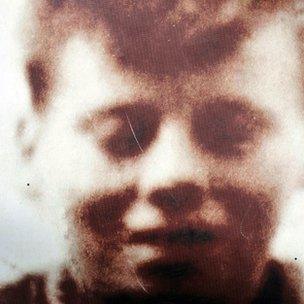
Noel Phillips was a 19-year-old window cleaner, who according to his brother Kevin "loved his style" and was so quiet, sedate and easy going that no-one could say a bad word about him.
Kevin Phillips said that when trouble broke out on 9 August 1971 his brother was "doing what kids do, you would go for a nosey that's all he was doing".
He said his brother Robert and a brother-in-law went to the morgue to identify Noel's body after he was shot.
"They came back in a terrible state, nothing was ever the same from that point," he said.
"Nobody came to tell us Noel was dead we just had to find out for ourselves."
He said his mother, once a happy go lucky woman, "went to pieces" and was never the same after losing her son.
"After his death everything just went black, everything changed for us. There was no laughing or messing about, the normal things six brothers would get up to, that all changed," he said.
"We never spoke about our Noel's death and we never asked our older brother Robert about identifying his body. He never spoke about it right up until the day he died."

Daniel Teggart
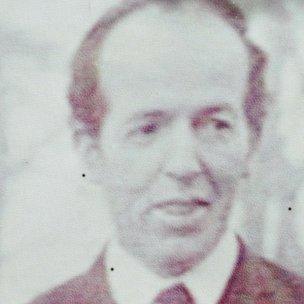
Alice Harper is the daughter of Daniel Teggart, 44, who was shot near the Henry Taggart army base near Springfield Park.
She said she was part of a family of 13 children and they had been living in a house in New Barnsley Crescent prior to her father's death.
"It might seem impossible to care for 13 children and work but my father did his stint around the house caring for us," Ms Harper said.
Mrs Harper said her father went missing on the day interment was introduced, 9 August 1972, and she went to the Henry Taggart army base to ask for information:
"I asked 'did you arrest my father?' I was just asking different questions and they just said 'no we hadn't time for arrests we only had time for killing' and that was their words."
The Army later directed her to a morgue.
"After that, all of our lives changed completely and it affected our family in a big way," she said.
The IRA shot dead one of her brothers in 1973.
"Our family never got any support we were just left to get on with things," she said.
"It took us a long time but we got our Bernard's name cleared. Now we need to get our daddy's name cleared. He was innocent just like Bernard was."

Joseph Corr
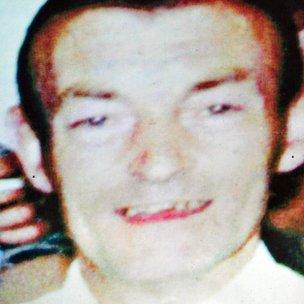
Eileen McKeown is the daughter of Joseph Corr, 43, who was shot at the top of the Whiterock Road.
Mr Corr worked in Shorts as a machinist. After the Army said he was an IRA gunman, his family got hate mail from his former colleagues, Ms McKeown said.
She said that Mr Corr lived for his family, even taking on part-time jobs to bring in extra money.
The family were in the process of emigrating to Australia when he was killed.
"Daddy was shot on the 11 August and was in hospital for sixteen days before he died, at the beginning he was missing, we didn't know where he was, whether he was alive or dead before he was found in Musgrave military hospital, I remember thinking why did they take him there when the Royal Victoria Hospital is closer?
"When my daddy was in hospital, we were taken to a refugee camp somewhere in Dublin to a convent I think, mammy must have thought we would be safer there.
"The next memory I have is my uncle Paddy telling us that my daddy was dead," Ms McKeown said, adding that the lives of everyone in the family changed completely.
"The soldiers who did this, they don't realise the after-effects. I mean, I used to have four brothers and now I've none.
"With all the boys they resented the fact that they lost their daddy and they never had a father figure around. Their dependence on alcohol and early deaths are as a direct result of losing my daddy."
Ms McKeown said she wanted her father's name cleared and the true facts to be recorded.

Edward Doherty
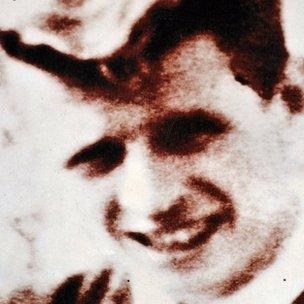
Kathleen McCarry is the younger sister of Edward Doherty, 31, who was shot at the corner of Brittons Parade and Whiterock Road.
Mr Doherty had been a soldier, a member of the Royal Engineers, who later joined the Territorial Army.
Ms McCarry remembers her brother as a family man. With rumours that internment was going to be introduced, Mr Doherty sent his wife and children to Ardglass in County Down.
Ms McCarry saw her brother on the second day of internment:
"I told him to watch himself going down the road and he said he would. He left my daddy's and went on to our sister Theresa's where he had a cup of tea. He left Theresa's at 4.35pm.
"The next thing we knew Eddie was dead."
"My mummy went to pieces, we all went to pieces, it was like a nightmare you were never wakening from, we just found it so hard to cope," Ms McCarry said.
She said her family and his were torn apart with grief.
Ms McCarry said she wanted her brother's named cleared for him and his children.
"It just takes over your life. When you think it's 47 years and that's a lifetime."

John McKerr
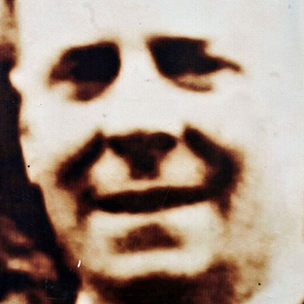
John McKerr was a 49-year-old former British soldier, who despite losing his right hand in World War Two worked as a joiner.
He was returning from working at a church when he was shot and injured on 11 August 1971. He died in hospital a week later.
The family found out he had been shot from a newspaper report the following day after he failed to return.
Mr McKerr was a father of eight and had four grandchildren at the time of his death.
His eldest daughter Anne Ferguson said the family had been brought up to "live and let live".
"The newspaper reports about daddy being in the IRA were terrible lies which only made matters worse," she said.
"As a family we were devastated by the untruths spoken about our father.
"If the inquest does find the truth it will help us all a little. Please God that it does."
Mrs Ferguson said her sister remembers an Army officer apologising to her mother before the funeral.
She added: "There is nothing in this world that will ever fill the void that his death has left for all of us."

John Laverty
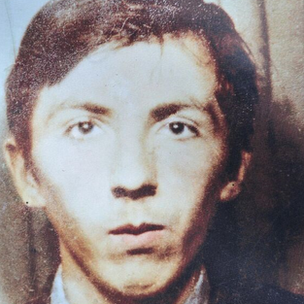
John Laverty, 20, was named after his uncle, who had fought in World War Two.
Carmel Quinn, Mr Laverty's youngest sister, said her earliest memory of him was being carried on his shoulders to Clonard Novena.
Mr Laverty, who worked for the Belfast Corporation, was shot in the back and killed on 11 August, while his brother Terry was arrested.
Mrs Quinn said her sister Rita remembers "hearing our daddy cry out in the chapel 'ah God, my son' and breaking down".
"We had never saw our daddy cry before," she added.
With John dead and his brother Terry imprisoned, Mrs Quinn said that "Christmas of 1971 was not a Christmas in our house, our mummy and daddy had two sons missing".
"Life went on but was never the same. We were happy and then, in the blink of an eye, it was all gone," she said.
In April 1974, Mr Laverty's sister gave birth to a son, named John after his uncle.
"My parents seemed to have found a bit of hope," Mrs Quinn said. "He was so much like our big John."
Tragically, five years later 'wee John' was knocked down and killed by a car.
Of her brother, Mrs Quinn said: "A young fella that had so much life in him to live. We truly wish we could hear his loud laugh, see the glint in his big brown eyes and most of all to hear him sing once more."
Related topics
- Published26 March 2021
